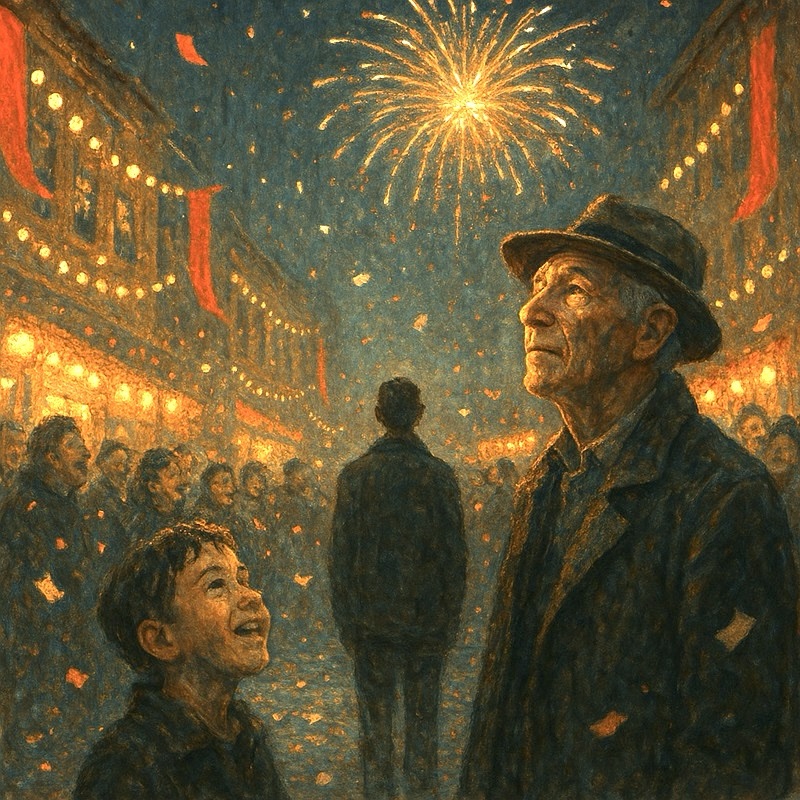节日是人类为时间所写的诗,
是在无声流逝中安放的一次短暂停顿。
它们仿佛在时间之流中打下了光的楔子,
试图将某一刻,从茫茫的恒常中提取出来——赋予意义,赋予仪式,赋予记忆的形状。
但时间,从不应答。
它如一条不识岸的河,沉默、不歇,
不因节日的烟火或荒芜稍作偏转。
它不纪念什么,也不等待谁。
节日并非时间的本质,
它只是我们——这些需要标记与暂停的生命——
对时间作出的回应,是我们赋予自身存在感的一种方式。
而时间真正属于的,是那一个个被悄然经历的瞬间:
没有鼓声,没有节旗,却在无声中完成一场场深刻的告别与抵达。
那些无人庆祝的清晨、无人铭记的夜晚,
才是时间教会我们的全部:
——在不被铭记的瞬间里,去寻找属于自己的意义。
Festivals are the poems humanity writes for time—
brief pauses we place within its silent drift.
They are like wedges of light driven into the current,
attempts to extract a single moment from the blur,
to endow it with meaning, ritual, the shape of memory.
But time offers no reply.
It flows like a shoreless river, silent, unbroken,
unmoved by fireworks or the barrenness of days.
It commemorates nothing, awaits no one.
A festival is not the essence of time,
but our response to it—
a gesture of beings who need markers, pauses,
who craft a sense of presence from ceremony.
Yet time truly belongs to the unnoticed moments:
the mornings uncelebrated, the nights unremembered,
each quietly delivering parting and arrival.
And in those moments—without drums, without flags—
we are taught the most essential lesson of time:
—to seek our meaning
in what passes without being marked.

